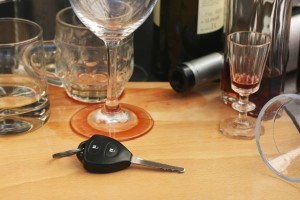Is a warrant required for DWI blood alcohol tests?
Posted May 28th, 2015 by Anthony Carbone, PC.
Categories: Criminal Defense.
 Just about everyone has heard the standard routine for individuals suspected of driving while under the influence (“DWI”). The police will initially ask questions. If they feel their suspicion is correct, they will move on to field sobriety tests. Next, they may ask the suspect to blow into a breathalyzer machine. They may even request consent for a blood alcohol test. However, what happens if there is no consent? Is a warrant required for blood alcohol testing in DWI cases?
Just about everyone has heard the standard routine for individuals suspected of driving while under the influence (“DWI”). The police will initially ask questions. If they feel their suspicion is correct, they will move on to field sobriety tests. Next, they may ask the suspect to blow into a breathalyzer machine. They may even request consent for a blood alcohol test. However, what happens if there is no consent? Is a warrant required for blood alcohol testing in DWI cases?
Fourth Amendment Rights
The Fourth Amendment of the United States Constitution gives people the right to … “to be secure in their persons, houses, papers, and effects, against unreasonable searches and seizures..” In the case of a blood alcohol test, it could be considered an unlawful search and seizure to insist on a blood draw. Notwithstanding, the Fourth Amendment also states that warrants may be issued with probable cause.
The United States Supreme Court spoke on this issue in the matter of Missouri v. McNeely, 133 S. Ct. 152 (2013). Although a Missouri man suspected of drunk driving refused to consent to a blood test, the police overruled him. They directed hospital personnel to perform the test. They did not wait to get a search warrant. The police were concerned that the blood alcohol reading would change if they wasted the time to get the warrant.
One problem. The police can only order blood alcohol testing in unique situations. At the time of the Missouri matter, there needed to be proof of something emergent. The police argued that the evidence would be destroyed if they waited to obtain the warrant. The court disagreed. A warrant was most definitely required in this situation.
Blood Draws as Evidence
There are times that it may be justifiable to obtain a search warrant. The requirement for a warrantless blood test is an exigent circumstance. This means that probable cause has been established and there is a sense of urgency. The police officer’s concern that the blood alcohol level would be lower would not be an emergency.
The law as far as blood tests includes a provision that is done by appropriate medical personnel. The samples must be properly labeled. In addition, there must be an accurate record showing the chain of evidence.
Prosecution of some DWI cases has failed based on the exclusion of blood alcohol tests submitted as evidence. This could include lack of consent or failure to obtain a warrant. Rarely, evidence may even be displaced.
The Law Offices of Anthony Carbone has represented many clients charged with DWI offenses. We welcome the opportunity to speak with you concerning your case. There is no charge for our initial meeting. Please contact us to schedule an appointment.


